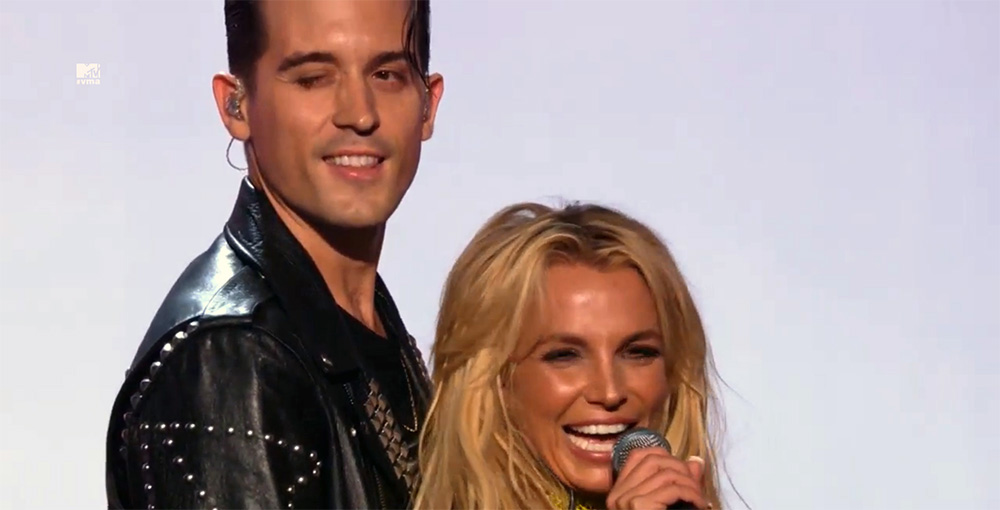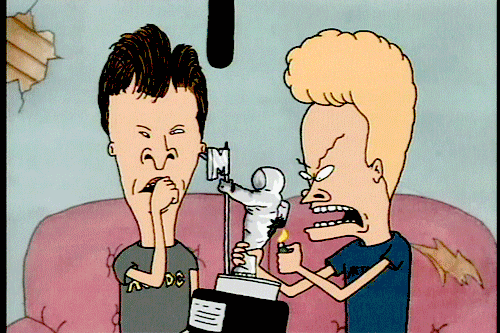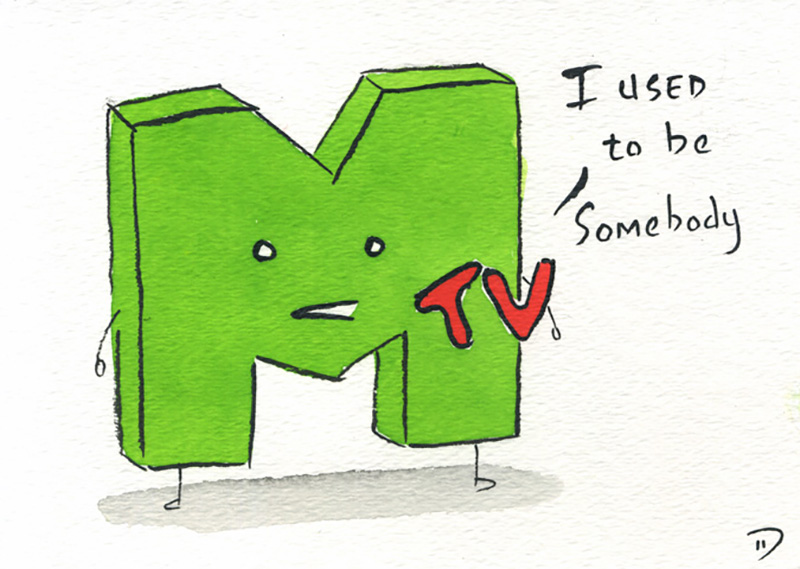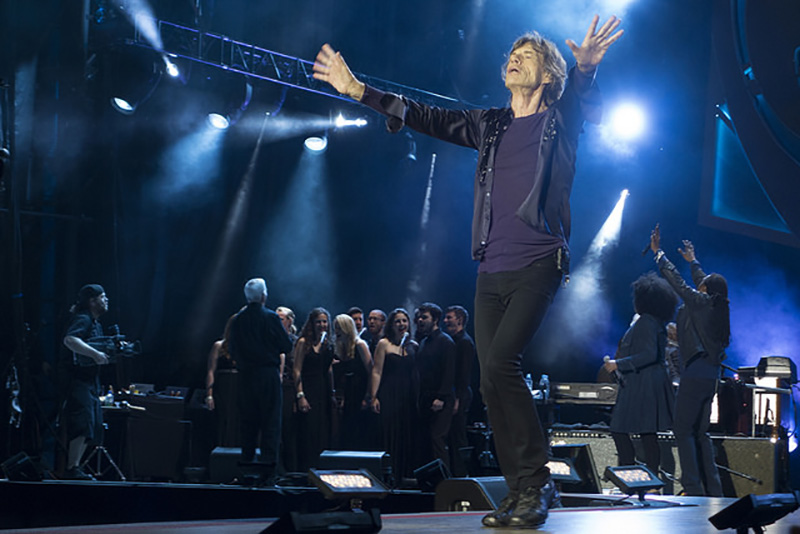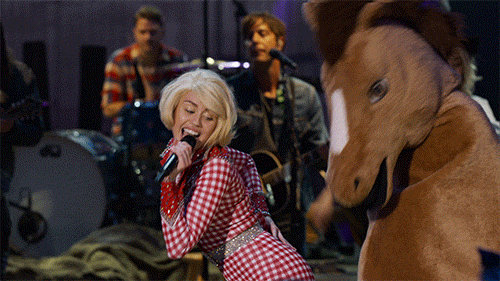“Does anyone under 25 play an instrument anymore?” grumbled one veteran producer in response to the recent MTV Video Music Awards show. “They need to take the M out of these awards.”
Audiences had an even harsher verdict on the MTV event. Ratings were down a whopping 34% over the previous year — and 2015 ratings had shown a comparable decline versus 2014. In an industry that agonizes over shifts of a fraction of a percent, this kind of free-fall is unprecedented. The music business brought out its biggest guns for the MTV event — Beyoncé, Kanye, Rihanna, and Britney, among other one-name phenoms — and the show was broadcast on 11 different networks, including VH1, BET, CMT, and Spike. Even Comedy Central gave the event wall-to-wall coverage. But I don’t think anyone is laughing now.
Consider this fact: more people watched The Great British Bake Off the previous week. Online streams for the MTV show were up, but that offers little consolation to promoters who depend on TV advertising to fund their gala events. Those golden days when Miley Cyrus twerked her way to MTV rating success now seem a blurred, distant memory.
I don’t blame MTV. This is a bigger problem than just the failure of a high-profile awards show. But MTV is a good symbol for the larger crisis in music. That network set the tone years ago for a glamor-driven music business, built on pizzazz and personalities instead of musicianship. That paradigm is now deeply entrenched in the entire industry. And it doesn’t seem to work anymore.
MTV was always ambivalent about that M, and enamored with the TV part of its acronym. From the moment of its inception, MTV worked relentlessly to downplay the role of musicianship in music. No organization in history has done more to turn music into performance art, and put the people making the actual sounds out of sight. And not just those playing traditional instruments — tell me how often you see the programmers and beat-makers behind today’s pop hits in a video, or even given credit for their contributions.
Of course, MTV has compensated in other ways, and deserves praise for doing so. When the network made its debut in 1981, commercial dance was in the doldrums, and had been since the glory days of Astaire and Rogers. MTV reversed the trend by aggressively promoting elaborately choreographed videos that delighted as much by their footwork as their melodies. The vibrancy of current-day vernacular dance styles wouldn’t be possible without this intervention from corporate America.
MTV also proved that music could reach a larger audience by drawing on the full range of tools developed by the movie business, the advertising industry and the fashion world. A new class of superstar — led by Michael Jackson and Madonna — really didn’t need to touch a keyboard, guitar, or saxophone. The whole package presented by these entertainers was more powerful, from a pop culture perspective, than even the hottest horn solo or funkiest bass line.
This formula of glamor-driven pop music has enjoyed an amazing run. For more than 30 years, success at the highest levels of the music business has demanded very little grasp of music. With the right look, the right camera angles, and the right booty . . . well, almost anything was possible.
But all revolutions eventually grow old. New approaches gradually turn into tired formulas. Radicals age into reactionaries, sometimes even more close-minded than the forces they were rebelling against.
So let me ask a bold question: Is it time for the music business to reconsider its marginalization of musicianship?
The current strategies pursued by the global entertainment corporations clearly aren’t working. The MTV ratings fiasco is just the latest in a series of collapses. Every year, record labels get weaker, and music tech companies get stronger. Things have gone south ever since the music business took a big bite out of the Apple, like a modern-day Adam — or perhaps I should say Apple took a big bite out of them. Amazon, Google, Spotify have done the same. Those tech giants are getting bigger and bigger as a result, but the folks on the “creative end” in music — sometimes quaintly called “content providers” nowadays, and previously known as musicians — definitely feel as if they have been booted out of Eden.
Sales of recordings have plummeted. Streaming has grown, but not enough to compensate. Even though the major labels target their offerings on teens and young adults, that group spends a much smaller percentage of income (or Mom and Dad’s allowance, in many instances) on music now than in the past. Teens are more willing to dig into their pocket for shoes than sounds. The going price for a tune in this demographic group is (drum roll please): nothing. Yes, that’s right, a big goose egg. Teen listeners do not have streaming accounts. They don’t buy physical albums. Instead, they turn to YouTube and other sources of “free” music.
Meanwhile the adults — many of whom remain willing to pay for that antiquated artifact known as the physical album — have retained their loyalty to old school performers who still play those even more antiquated instruments. If you check the sales charts, you will notice that the senior citizens are doing quite well. Paul Simon just enjoyed a number one album. Dylan still sells well. The Rolling Stones will soon release a blues album, and no doubt will earn another gold disk to put up on the wall.
Too bad their core fans are dying off. If you go to a Stones concert, the audience is still using drugs, but they have substituted blood pressure medication for the LSD. I love those gray-haired old-timers, but they can’t help solve the industry’s problems, even if they still can sell albums.
What about the younger generation? Believe it or not, there is no hot superstar guitarist under the age of 30. There is no next Hendrix. There is no next Clapton. Oh, there are plenty of fine young guitarists out there, but none of them can get the kind of media platform necessary for true superstardom in the year 2016. Mull that over, and think about the implications. The same is true for keyboards, drums, and even all those software programs that create the fabric of contemporary pop music.
I’ve heard cynical interpretations of the current state of affairs. According to this ugly theory, record labels prefer a world in which musical talent has little impact on success. Face it, talent is always rare, and the people who possess it can be difficult to control. The labels are much happier when they can create stars through marketing and packaging, supported by an entourage of makeup artists, camera operators, and other behind-the-scenes helpers. This puts the power in the hands of the business execs who control the machine that creates the pop star. The moguls at the corporate office sleep better at night when talent is removed from the equation.
I don’t subscribe to this theory, although I think it has some explanatory power. I believe that the shift from musicianship to glamor was, in its day, a genuine innovation. But the industry has now lost the ability to operate in any other way. The people in positions of power at the labels also lack, in many instances, a deep understanding of musicianship. They may have an eye for what looks good on stage, but they don’t have discerning ears. In a glamor-driven business, that wasn’t a problem. But now?
The whole generation of knowledgeable A&R execs who sought out and evaluated musical talent (as opposed to sex appeal, edginess and stage presence) has left and gone away. Hey, hey, hey! The people who have replaced them lack the ability to see outside the pop culture bubble they have created. Even they grasp that the old game isn’t working, but they don’t have the skills or vision to create a new paradigm.
Let me offer an analogy. The people running the music industry today are like priests in a dying cult. Even they don’t believe in the dogma anymore. They see the trend lines too, or at least the falling profit numbers. But they are too invested in the current business model to see beyond it. Yet if the high priests of the music biz lack faith in their product, how much longer will the audience maintain its devotion — and those essential tithes that pay for the corporate jets and expense accounts?
The end result of this is obvious. Change will come; it always does. And I can already tell you its source. As always, a new group of outsiders will force the issue. Outsiders always create the biggest upheavals in music — that was true with the slave singers of ancient Rome, the goliards of the late medieval period, the blues and jazz artists of the 1920s, and the rockers and rappers of more recent years. The establishment never brings about the revolution. The power brokers in music simply wither away, until someone else with a stronger vision steps in to fill the void.
The situation in pop music today isn’t much different from the early 1950s, when the blandness and sameness of the offerings were obvious to any discerning listener. In 1953 or 1954, you might not have predicted the rise of rock ‘n’ roll, but you did know that this shallow and vapid music on the airwaves wouldn’t last forever.
Where will the next revolution come from? Those with a nostalgic attachment to the past will inevitably be disappointed. The next wave might embrace musicianship, but it won’t signal a return to the past. It will deliver something new and fresh, although growing out of elements already present on the current-day scene.
Where should you look for the coming upheaval? Let me make some suggestions. These folks aren’t the revolutionaries . . . those will come later. But they are signs of a change in the attitudes of the most creative people in the music biz, the so-called content creators.
Here’s a checklist for you. Pay attention to the hip-hoppers who are now hiring hotshot real musicians for their recordings, instead of working off samples and simple beats. Listen to the artists from outside the US and Europe who are blending their own musical traditions with contemporary sounds, and don’t need any MTV dance steps to get the audience on its feet. Don’t ignore the quasi-anarchic clash of styles and approaches now taking place in video game, film, and TV soundtracks. Give close consideration to the emerging classical composers who are drawing on commercial music styles, sometimes in wild and unpredictable ways — people like Nico Muhly, Caroline Shaw, Judd Greenstein, Caleb Burhans, Todd Reynolds, and many, many others who don’t get much coverage in the mainstream press, not yet, but are creating a formidable body of creative work. Take stock of the rockers who are, in turn, composing classical music and with a blissful disregard of the pieties of the concert hall and arena rock. Also notice how those subversive pop songs with actual chord changes and piano parts seem to generate an emotional response from audiences when they slip by the gatekeepers and on to the airwaves. Finally, check out all those commercial music stars who are collaborating with jazz players. Ask yourselves: what do these people know that the suits at MTV don’t?
As I noted above, these aren’t the new wave, but they signal the discontent of brilliant creative minds who are unhappy with the current paradigm of glamor-driven music and want to overturn it. Mark my words: it will topple. The overall direction is clear: ambitious performers trying to find their way to the future are seeking out musical talent right now, not just a cool wardrobe or a new dance step.
I’m not sure how these trends will develop, but I know that the times they are a-changin’. Hidden beneath the 15 songs played over and over again by the dying radio stations, a whole universe of exciting music-making is out there. I listen to new music every day, and I hear the talent that the current power structure in the music business is ignoring. They don’t want to let you hear it. Or maybe they don’t even know about it.
Too bad for them. Because something’s gotta give, and it’s almost certainly the people currently running the show. It’s just a question of when. And the next time the music revolution comes, it won’t be televised on MTV. •
Feature image screen cap from MTV.com. Images courtesy of Dan Goodsell and Tywan Photographie via Flickr (Creative Commons).
